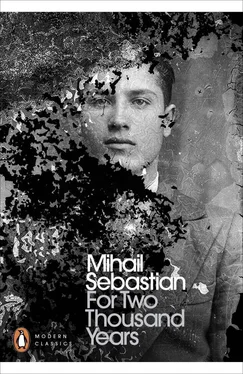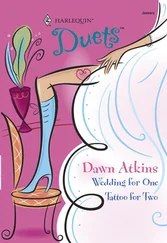To put it crudely, Romanian culture has remained stuck with the same intellectual problems which arose when the first railroad was built in 1860. With the problem of identifying with the west or the east, with Europe or the Balkans, with urban culture or the spirit of the countryside. The issues have always remained the same.
The poet Vasile Alecsandri formulates them with naivety, Ghiţă Blidaru and Mircea Vieru formulate them with a critical spirit. Yet the rural type and the urban type are the only categories that remain permanently valid in Romanian culture. I believe you can always easily distinguish the devotees of one or the other of these two orientations, anywhere, in Romanian literature, in politics, in music, in journalism … The choice is clear for Vieru. He’s the urban type par excellence. One of those Europeans who have been shaped by Cartesianism, the bourgeois revolution and civic culture, a new nation on this continent, and one that transcends any national borders.
‘I believe in the identity of man. I believe in permanent, universal values. I believe in the dignity of intelligence.’
I’m convinced these three short sentences sum up the basis of Vieru’s thinking. I once asked him if the war, from which he returned with two poorly mended wounds, had not turned his intellectual certitudes upside down.
‘Rather the contrary. I fought seriously, because I like to take everything I do seriously. But I always knew what it was all worth. After I was wounded the second time, I woke up one night in a field hospital, dumped on a stretcher in a corner, beside a German corporal, also wounded, who couldn’t have been more than nineteen and who told me he was waiting for the war to end so he could go to Paris, to work on his thesis about the connections between Goethe and Stendhal. We talked about this all night and helped each other to reconstruct a map of Beyle’s pilgrimage through Europe between 1812 and 1840. The next morning we were going to go our separate ways for good, me to one hospital, he to another, and perhaps both to our graves — but, in the meantime, that night, our most urgent problem was that one. In two years of war, that meeting was the finest thing that happened.’
*
I can see the master living just as easily in accordance with such principles, such simple laws. What I find hard to understand is not Ghiţă Blidaru’s thinking and his life, but how the two mesh. They seem so contradictory to me!
This man, who has passed through libraries, through universities, through metropolises, strives to remain a ploughman in his thinking. ‘That’s all I am,’ he tells me. Perhaps that’s true. But in the same evening I listened to Bach’s second Brandenburg Concerto on his gramophone and, for the treason to be complete, good old Couperin’s Les Folies françoises . He has a fine understanding of art, down to the slightest nuances and the finest shades. And then there’s that Brueghel, the only painting in his study. What is it doing in the house of a ploughman from Vâlcea, who never tires of reminding me what he is?
So Ghiţă Blidaru inhabits an environment his thinking rejects, lives by values he denies, enjoys victories that he disputes.
‘Europe is a fiction,’ he’s been saying in his university course for six years, while never ceasing for a moment to love the spirit of this fiction. Brueghel belongs to this fiction, and Bach, and certainly Couperin.
Nevertheless, having passed through and loved them all, Ghiţă Blidaru inevitably returns to his grapevine, in the name of which he was lecturing the other day at the university.
The miracle by which this man manages to think, effortlessly, unaffectedly, like a peasant, is not something I can comprehend. His vision of life seems to open towards as much sky and earth as is visible between the handles of the plough. He requires no more than that. He believes in natural laws which are made and unmade from on high, he believes in hierarchies which no one has the right to challenge, and in the limitless dominion of the land over man. ‘You are what your land makes you, no more.’
For me — tired of having believed excessively in my right to assert myself against life, as though shouting ‘Stay still!’ — this notion of ease, of submission, of renunciation, was a lesson in modesty and the beginning of peace.
But I wonder why his own pride, which I reckon to be immense, does not revolt. Or how his desire for adventure doesn’t protest, or how his instinct for vehemence, struggle and wandering does not assert itself, and how these passions are tamed. Is it because his intelligence has set the example by sacrificing itself?
Because this intelligence, which is fiery enough to start a revolution, seems determined to bury the passions in ashes, to die one day with the simplicity of mind of a peasant who has never left behind the sickle blade with which he has cut grass for seventy years out of eighty.
I came across Phillip Dunton at the company offices in Piaţa Rosetti. He’d delivered some reports for Rice and was hurrying to catch the two o’clock train back. We stopped on the stairs to shake hands.
‘And how’s Marjorie doing?’
‘She reads and sits by the stove. It’s terribly cold in Uioara. It was freezing, like in mid-winter. But didn’t you see Marjorie here last week? She was at Ghiţă Blidaru’s opening lecture too. She came specially: said she couldn’t miss it. It was about Uioara, wasn’t it?’
I didn’t manage to answer. He had only five minutes to catch the train. He shouted from the bottom of the stairs:
‘Come to Uioara some Sunday. It would make Marjorie happy.’
So, she was here last week. At another time she would have burst into the workshop in the morning and shouted from the doorway: ‘I’m kidnapping you. You’re mine until 22.17.’
… And that stupid lie about the opening lecture, which she didn’t even attend. It’s not your style, Marjorie, to lie.
And I would have bet that in adultery you would have remained straightforward and without cowardice.
Now I understand Dronţu’s sensitivity, his inability to bear Professor Ghiţă’s lecture for fear of it being too rough on the master.
Today, in the office, I said to Marin in passing:
‘Phillip Dunton was here yesterday. We met at the office.’
For a good few seconds dear old Marin kept his thoughts to himself: to hear or not to hear what I was saying? He opted for deafness.
‘Who took my set square?’ he suddenly bellowed. ‘Yesterday I left it here, and now it’s gone. Maybe we’re haunted. It’s unbelievable. You can’t work in this place.’
The louder he bellowed, the falser the outburst sounded to him. Not knowing how to end it, he shouted even louder.
Then he suddenly went quiet, frowning and sombre. He muttered from time to time, shrugged his shoulders, swore by all the saints.
He caught up with me in the street after work.
‘Why don’t we go get a brandy?’
‘Sure.’
‘Come on, then.’
And, later, on the way, apropos of nothing. ‘To hell with women. I’m telling you, there’s no end to the trouble they bring.’
*
A long, despairing letter from young Dogany. Things are not going at all well in Budapest. The university has been closed again, there have been major disturbances, street battles, arrests. He himself received a pretty bad blow to the head.
‘Everything would be fine and I’d put up with it all, if at least I could manage to stay. On Thursday I have to present my papers at the secretariat of the faculty for another review. Will I be allowed to stay? Will I be expelled? My father threatens to cut off my allowance if I don’t return to Satu Mare. But I can’t, I simply can’t. What can I do there, in a country that’s not mine? But is Hungary my country? Yes, absolutely, whatever my father says and however much you might laugh. Only one man could understand me, if he were alive today: Endre Ady. I’d write to him and I’m sure he’d understand me.’
Читать дальше












